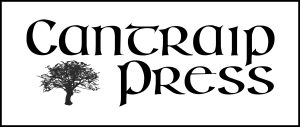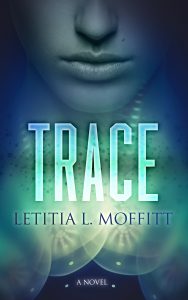There are kids who dream of growing up to be entrepreneurs. They set up lemonade stands at the end of 10K races. They seek out jobs stocking supermarket shelves or hawking mall fashions as soon as they’re old enough to work.
I wasn’t one of those kids. I put off getting my first job as long as possible, preferring to spend my summers reading books.
So it’s ironic that I find myself the president of a corporation.
Okay, it’s not much of a corporation. Its assets might keep a dog in kittles for a lifetime as long as the dog isn’t too large and price of kittles doesn’t skyrocket.
How did this happen?
A few years ago I decided to quit looking for another agent and publish my novel Talion on my own. A newbie to the world of publishing, I learned that a book must have something called an ISBN, a number that identifies it for cataloguing and marketing. There are several ways to obtain an ISBN free of charge, but whoever gives it to you is the publisher of record for your book.
If I was going to invest time and money to publish my novel, I wanted to be the publisher of record.
That meant becoming an official publisher. It’s easy to do. Just go to myidentifiers.com and buy a batch of ten ISBNs for a little less than $300. You’re now a publisher.
 I called my publishing company Cantraip Press. Cantraip is an archaic Scottish word meaning “magic spell.” I hired a graphic artist to design a logo with a Celtic flavor and I was ready to go. (Since then I’ve redesigned the logo.)
I called my publishing company Cantraip Press. Cantraip is an archaic Scottish word meaning “magic spell.” I hired a graphic artist to design a logo with a Celtic flavor and I was ready to go. (Since then I’ve redesigned the logo.)
A year later, I agreed to publish Occasional Writers, an anthology by the Past~Forward Memoir Group, a group of local writers who meet twice a month to discuss each other’s work and hone their skill. Since the group is funded by our local arts council, I had to enter into a contract with a corporate entity as well as with each of the nineteen writers whose work would appear in the anthology. With advice from an attorney, I drafted the contracts myself.
 It was time to separate my business obligations from my personal obligations and those of my husband. The press became an S-Corp, Cantraip Press, Ltd., which looks kind of cool on letterheads.
It was time to separate my business obligations from my personal obligations and those of my husband. The press became an S-Corp, Cantraip Press, Ltd., which looks kind of cool on letterheads.
The process of incorporating isn’t difficult—fill out a form, pay some money to the State of Illinois, acquire a credit card for business expenses.
When the fiscal year ended, I thought vaguely about corporate taxes. Given that Cantraip Press, Ltd. had made only a few hundred dollars in profits, I doubted it would owe the government any tax. But I figured the government would expect me to submit a return, which I would prepare along our personal income tax returns.
Then at the beginning of April I got a letter from the IRS. Cantraip Press, Ltd. owed them $200, the penalty for failing to file a return by the deadline.
But, but . . . April 15 was two weeks away.
Was this some kind of sick April fool’s day joke perpetrated by the IRS?
The letter gave a phone number to call if I had questions. So I called. The lady who answered explained that corporate taxes are due on March 15. I apologized, telling her it was my first corporate tax return and I was clueless. She was kind enough not to laugh. Instead she put me on hold. A few minutes later she was back. Since I didn’t know about the March 15 deadline, she said, the IRS would waive payment of the penalty—this one time only.
Whoever said the IRS is heartless?
Every year since then, I’ve prepared my corporate tax returns, federal and state, and mailed them well before March 15. In May I mail off another form and a $100 check to renew the status of Cantraip Press, Ltd. as an official S-Corp in the State of Illinois.
But here’s the thing. I hate—just hate—keeping books and doing taxes. I have the requisite software programs, QuickBooks and TurboTax. They make the work easier, but they cannot make it interesting. For me it’s a slog. I can concentrate for hours on writing or editing or playing Scrabble, but ten minutes of bookkeeping spaces me out.
Between bringing QuickBooks up to date and doing the taxes, the last week of February was no fun. It would make sense to hire an accountant if my tiny corporation made any money. But it doesn’t.
 The press has grown, though. It has published six books altogether, two by me and the rest by other authors. This spring Cantraip will release two more books, my novel Darkroom and a two-novella volume, Vibe/Sync, the second in Letitia Moffitt’s TraceWorld series.
The press has grown, though. It has published six books altogether, two by me and the rest by other authors. This spring Cantraip will release two more books, my novel Darkroom and a two-novella volume, Vibe/Sync, the second in Letitia Moffitt’s TraceWorld series.
I’ve had to buy more ISBNs. The truth is I like publishing books, I just hate balancing them.





